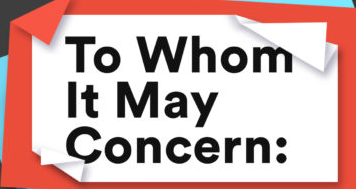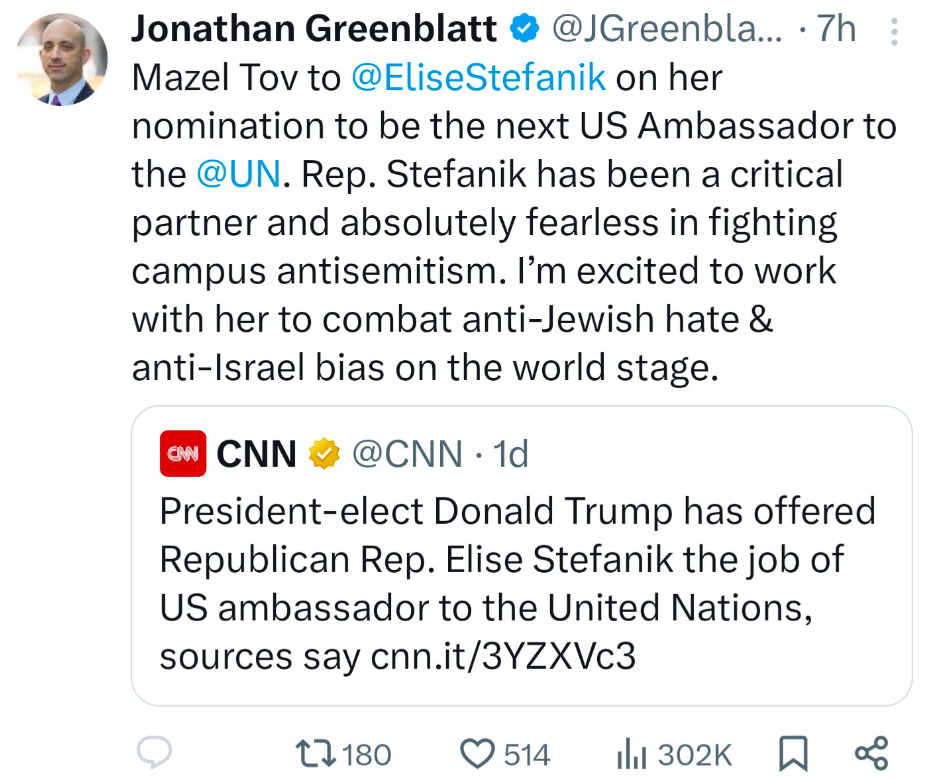When I think of what I, as a liberal, want the media to do, it's really quite simple: just tell me what's happening -- without varnish, horserace hypothesizing, or "sanewashing". I don't need them to lie to me. I don't need them to confirm my priors. I don't need to have "bad" news hidden from me. I don't need or want a liberal version of Fox News. Just tell me what's going on!
For example, immediately after the election and Trump's victory, the stock market went way up. It seems the market was happy with Trump's victory (alongside, I'm guessing, general happiness that the outcome was decisive). As a Democrat, that's not pleasant to see -- but still, I didn't need anyone to hide that fact. I didn't need to construct some Potemkin coverage where it didn't happen. I didn't even need some side-eye slant about how it turns out "the elites" seem rather elated at Trump's triumph (I can make that inference on my own). Just tell me the truth. It will suffice.
Now, I fully admit that this "simple" request isn't so simple. Nonetheless, even accounting for its easier-said-than-done character, there's little doubt that the media has been abjectly terrible at this. And while the reasons behind it are myriad, one answer I keep returning to is an argument I made back in 2018: namely, that the media thinks of itself as part of the liberal "family".
It may be counterintuitive why that leads to conservative media bias. But the idea is that, to the extent journalists fundamentally see themselves as liberals talking to liberals, then there isn't much need to report on various dangers and predations of conservatives. "We" already know that. There's nothing new here. If anything, the job of a journalist is to disturb "our" preexisting narratives. And since the "we" and the "our" are all imagined to be liberals, we get an endless stream of apologetics, explainers, and sanewashing of conservative extremism.oooo
But I said in 2018 and I'll say it now: regardless of the personal politics of any particular editor or journalist, the media is not part of the liberal family. They should not presume their only audience is liberals, they should not assume that their job is to give liberals "the other side of the story", because they should view conservatives (or liberals) as "the other side" to begin with. This is related to something Jamelle Bouie wrote recently: the political media has a bad habit of thinking its job is to play amateur political strategist for Democrats, instead of just trying to accurately report on what's happening in the world. When we're talking about Biden's alleged mental decline or Trump's rambling political speeches, we don't need hypothesizing about how this is playing out in swing states. Just -- tell us what's happening. Report Trump's speech. Report Biden's speech. The audience can decide for itself whether this reality is "good news" or not for Democrats or Republicans.
I admit, there is a small part of me that harbors hope that the surrenderist policy taken by many journalistic "elites" towards Trump -- exemplified by the owners of the Washington Post and LA Times craven non-endorsement decisions -- might disabuse some other members of the legacy journalist community of the naive notion that "everyone" (who counts) already knows how dangerous Trump and his cronies are. The increasingly evident truth that this assessment is not universally-held (obviously it's not!) should, in an ideal world, dissipate the notion that straightforward, accurate recounting of what's going on in Trumpland is in some way preaching to the choir or superfluous repetition of obvious truths. And likewise, it should be obvious right now that the main "bias" the media needs to combat within itself is not a propensity to overtell liberal narratives, it's an instinct to self-censor truths inconvenient to conservatives because it's viewed as gilding the lily.
On this score, the early returns are not good -- the media is already racing to sanewash RFK Jr.'s anti-vaxx positions on the apparent premise that "we all" know why vaccines are healthful, and need to understand the argument for why they're dangerous. The reality, though, is that we don't all know that vaccines are healthful, and lots of people need to be educated on why avoiding or tamping down on vaccines is what's dangerous.
This, ultimately, is what it actually means to speak to an audience of conservatives and liberals alike. It's not about being evermore coddling and accommodating of conservative conspiracism -- that's never going to work. Ultimately, it means remembering that not "everyone" knows and accepts truths inconvenient for contemporary conservatism, and when reality poses facts troublesome to a conservative reader, it is the media's job to report those facts without varnish or sugarcoating. To borrow from Harry Truman: you're not giving your conservative readers hell -- you just telling them the truth, and they're calling it hell.




